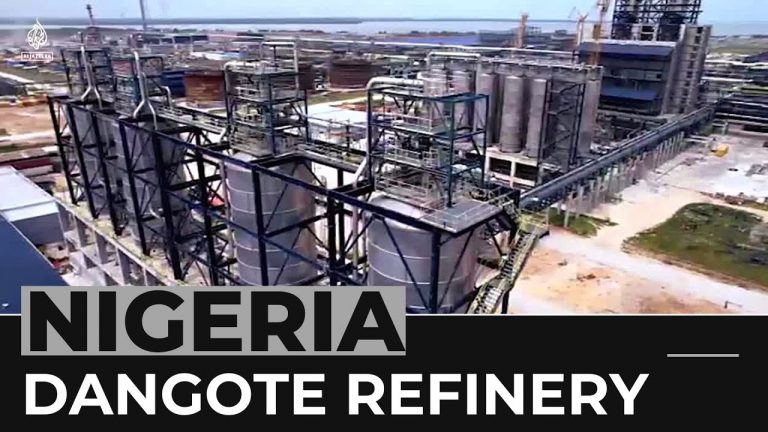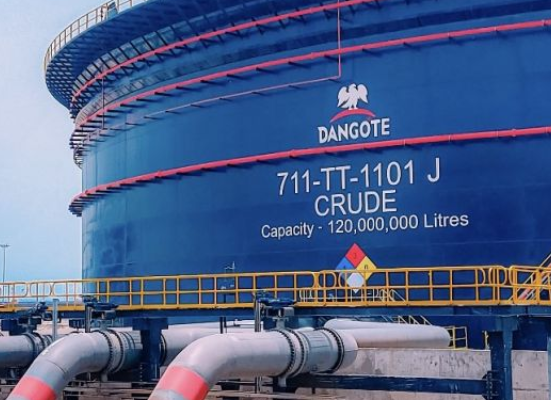A temporary suspension of fuel sales in Nigeria’s local currency, the naira, due to challenges in securing sufficient crude oil under the existing naira-for-crude arrangement.
The 650,000-barrel-per-day facility, located near Lagos, has faced difficulties obtaining adequate crude volumes through the Nigerian government’s naira-based crude purchasing system. The refinery’s management indicated that sales in naira have surpassed the value of naira-denominated crude received, prompting the decision to align sales currency with procurement currency, which is predominantly in U.S. dollars.
This shift could lead to increased gasoline prices and exert additional pressure on the naira, as market participants may seek to exchange the local currency for dollars to facilitate transactions.
The Dangote Refinery, inaugurated in 2024, was anticipated to reduce Nigeria’s reliance on imported refined petroleum products. However, securing a steady supply of crude oil has been a significant challenge. In February 2025, Nigeria’s upstream oil regulator announced that it would deny export permits to oil producers failing to meet their domestic refinery quotas, as mandated by the Petroleum Industry Act. This law requires producers to allocate specific crude volumes to local refineries, including the Dangote facility, before exporting.
Despite these regulatory measures, the Dangote Refinery continues to face hurdles in obtaining sufficient crude supply, leading to operational challenges and decisions such as the recent suspension of naira-based fuel sales. The situation underscores the complexities within Nigeria’s oil sector, as the country strives to balance domestic refining capabilities with the dynamics of global oil markets.







